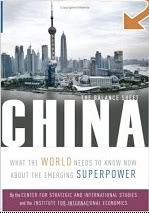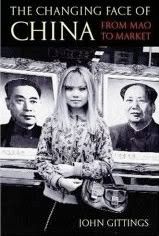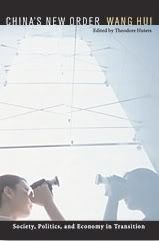Interview With Wang Chaohua

Wang Chaohua, Beijing Student Leader. Now a Ph.D. candidate in modern Chinese literature at UCLA, Wang was a graduate student in 1989, and older than many of the students involved. She spent much of the Cultural Revolution in the Chinese countryside, then returned Beijing to study civil engineering just before the Cultural Revolution ended. She entered graduate school in Chinese literature in 1987.
What impact if any, do you think the student movement had on changes that have taken place in China up to now on issues ranging from, for example, personal freedoms, openness of the political system, and tolerance for dissent?
There have been changes in China since 1989, in regard to personal freedoms, political system, or tolerance for dissent. In my view, these changes are not yet supported with well-articulated political positions. For example, personal freedoms might be in one way or another broadened from that prior to 1989, but they are not openly justified as "personal freedom" by citizens, or publicly acknowledged by the authorities as so as to be fully guaranteed and protected by the Constitution and laws. For another instance, greater tolerance for ideological dissent can be observed in various field, but tolerance for political dissent has been under strict control. In terms of political system, "political system reform" as an official leading slogan has virtually disappeared in the part ten years, if we remind ourselves how much Zhao Ziyang - and even Deng Xiaoping - talked about it prior to 1989.
Taking these observations into account, I do not think the changes in today's China have come about as a result of the '89 student movement. On the contrary, many explicit slogans of that movement, such as "upholding the authority of the Constitution," or "Freedom of speech and freedom of press," have been deliberately suppressed by the authorities, and selectively "forgotten" by the society.
Thinking about it now, do you think what the students were asking the government to do was what they should have been asking? Given the chance to go back, how would you change the goals of the movement?
Talking about the "goals" of the movement for me is at the same time talking about "strategies." Unfortunately, we students in 1989 often mixed the two, and let the latter easily take over the former. Thinking about the whole process today, I would suggest that we students should have insisted on official recognizing/legalizing our autonomous organization, and we should have not made any compromise over this essential issue, while having been more flexible on other "strategic" issues.
My opinion on this issue is based on the following understanding of the actual process: when the government refused to hold formal dialogue with our autonomous organization (in early May 1989), we set up another separate student group (The Dialogue Delegation) in order to have open dialogue with the government, with the internal excuse to ourselves that during the course of dialogue we could always push the government to recognize us; when the hunger-strike started on May 13, this issue of recognition was pushed further to background, and asking for an open, live-broadcast dialogue became the immediate "goal."
In my view, this process in a casual manner exhausted our strategic potentials and obliterated our utmost important goal to pave the way for long-term democratic changes in China.
As for how certain strategies and tactics were chosen and others were dismissed, I must admit there was not a fixed procedure and it was always different from one case to another. Anyone who wants to understand the student movement must remember that the Chinese students in 1989 had no previous experience of non-official, autonomous organization, and the political situation was putting tremendous pressure on their newly-born organization to make decisions every day, if not every few hours. In my view, this inexperience, along with inadequate ideological preparation, also played into the disadvantage on the student side in terms of selecting available strategies and tactics.
Based on your experiences during the demonstrations, if you could ask one thing of the current government in China, what would it be?
Give us freedom of assembly and freedom of speech.
If you were advising Chinese students today on how to bring about support for human rights improvements and democratic change, what would you tell them?
I'd suggest that they think for themselves and respect minority opinions. In my view, these are some basic qualities for today's students to become tomorrow's intellectuals in the cause of leading China to a democratic path.
What motivated you to join the students in Tiananmen Square? At what point during the movement did you decide to join? What was your role from the time you joined until June 4?
I joined the students during the night of April 21-22, when Hu Yaobang's funeral was to be held in the morning of April 22. The size of the student columns that night and their spirit of self-discipline were the two main factors that convinced me that this time the masses might be able to play a decisive role in pushing the government to change towards democracy. I was curious to know how the highly-disciplined demonstration was achieved.
To be frank, my discovery was not very encouraging. The highly-disciplined appearance of the student demonstration was mostly a spontaneous reaction to the government. Consequently, I was convinced that I should try my best to turn the spontaneous self-disciplining spirit to a long-term organization. Due to this conviction, I was more interested in getting into organizational work than participating in exciting demonstrations. This was not at all the case with most of the student demonstrators in 1989. So, in less than a week, on April 28, I became a member of the Standing Committee of the Autonomous Association of Beijing College Students (Beijing gao xiao xuesheng zizhi lian hui).
As I said earlier, the student organizations in 1989 were highly volatile, and inexperienced. My "official" title changed a few times during the whole process, but my activities were mainly around the center of those leading student organizations, particularly this Autonomous Association of Beijing College Students.
Where has your participation in the movement left you personally?
My participation in the movement left me with determination that I must keep my effort in searching for a better future for Chinese people. There could be various ways to do things under such a broad statement. Personally, I was left with the belief that there has not been an adequate political, ideological line for a democratic movement to fully mobilize Chinese people.
I would say this is an intellectual weakness in China on the one hand. On the other hand, this is also due to the weakness of the West. When Chinese people look westward, they do not see convincing positions in the West that speak for "them" as a collective of non-Western people, not just for the future of the "nation" or the "state," nor just for "people" without a collective "national" goal.
Before 1989, I was neither politically nor intellectually very active. Since then, I have had the belief that I must pursue knowledge, pursue self-consciousness, especially political consciousness. I shall also try to share my ideas with others. These can summarize what I've been doing since then. In other words, I've been less involved in organizational activities.
If you are in contact with any of your colleagues who remained in China, do you know what kind of impact their participation in Tiananmen Square has had on their lives?
People I knew who participated in Tiananmen Square in 1989 are unable to forget that experience, but their experience differs. Some activists were imprisoned for years, and couldn't live a normal life after their release. They were frequently harassed by police. Some then became silent in political terms in order to keep a relatively peaceful life.
Another group, including myself, decided to launch vigorous intellectual inquiries into the alternatives for a better future for the Chinese people. They have been courageously critical of many aspects of the society today, even under great political pressure from the authorities.
There are others who have become rather pessimistic and have turned to cooperation with the government, believing that that is the only path to bring changes to China. Personally I do not agree with the position of this last group.*** Link




0 Comments:
Post a Comment
Subscribe to Post Comments [Atom]
<< Home